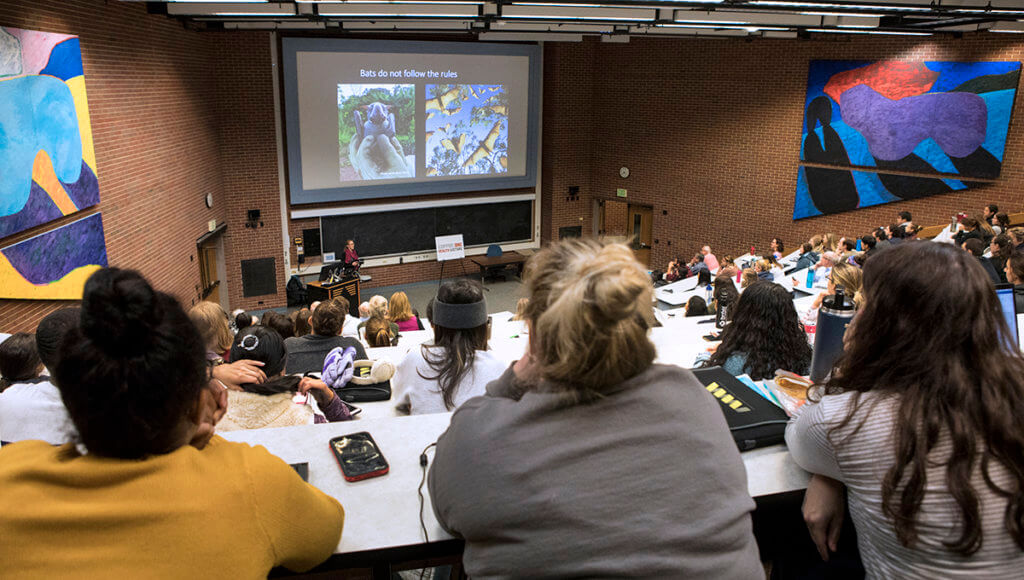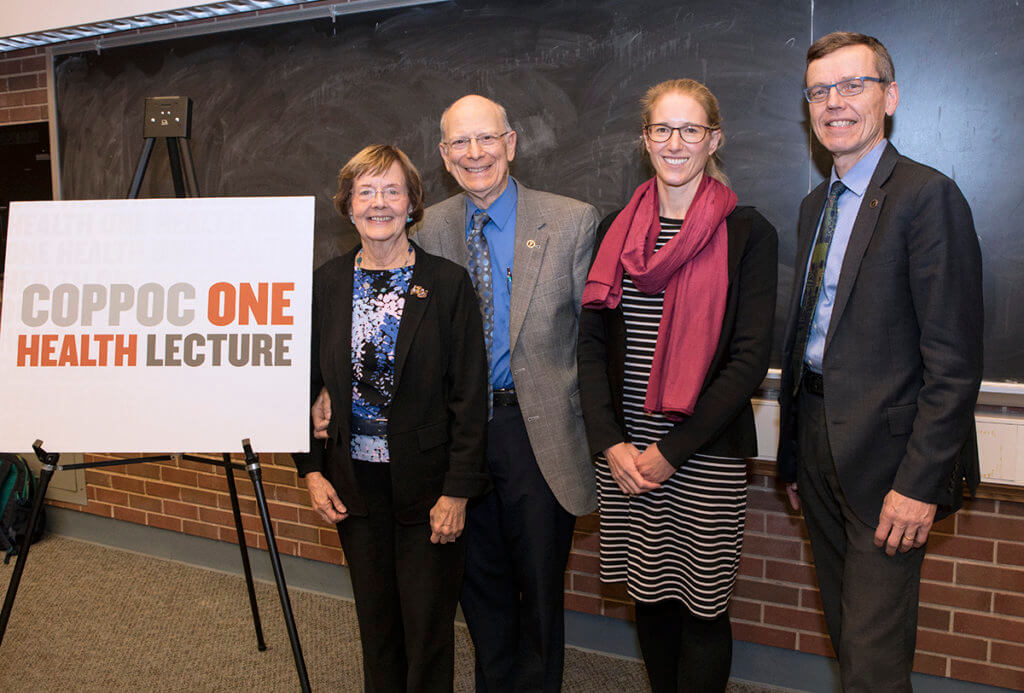
The sixth annual Coppoc One Health Lecture brought Dr. Raina Plowright to Lynn Hall on Thursday, November 7, to address the issue of pathogen spillover and its One Health implications. Raina Plowright, BVSc, PhD, is an assistant professor in the Department of Microbiology and Immunology at Montana State University, and has extensive experience as an infectious disease ecologist, epidemiologist, and wildlife veterinarian. Her lecture titled “Pathogen Spillover: Lessons Learned from Emerging Bat Viruses” focused on how spillover happens, why it is important from a One Health perspective, and how taking a deeper dive into the root cause can help prevent additional spillover events.
According to Dr. Plowright, viruses that originate in bats may be the most notorious for spilling over from wildlife into domestic animals and humans. Understanding how these infections filter through ecological systems to cause disease in humans is of great importance to public health.
In her lecture, Dr. Plowright described clusters of Hendra virus in bats that posed risks to horses in Australia. Hendra is a virus that infects large fruit bats, known as flying foxes. Occasionally the virus can spread from these bats to horses. The infection is believed to be transmitted when horses eat feedstuffs recently contaminated by flying fox urine, saliva, or birthing products, such as the placenta and amniotic fluid. Infected horses can then spread the virus to humans through contact with bodily fluids.

In Australia, shortages in food sources and habitat loss have forced bats to change their roosting behaviors, leading to more interactions with horses and humans. The stress of the ecological impact results in increased viral shedding, which ultimately causes additional concerns for pathogen spillover events. Dr. Plowright not only explained those pathogenic concerns, but also concluded her lecture by discussing the related social and economic impacts. These spillover events have caused controversy over vaccination recommendations for horses, land development, climate change, and the added expenses for communities facing increased fruit bat populations.
Dr. Plowright worked as a veterinarian on five continents before receiving an Australian Fulbright Fellowship to complete her PhD in ecology and master’s degree in epidemiology at the University of California, Davis. She then accepted a position as a David H. Smith Fellow in Conservation Research at the Center for Infectious Disease Dynamics at Pennsylvania State University before joining the faculty at Montana State University. Her research focuses on the dynamics of zoonoses in wildlife, the conservation implications of diseases in wildlife, the transmission of pathogens across species barriers, and links between environmental change and disease emergence.
Named in honor of Dr. Gordon Coppoc, a Purdue professor emeritus of veterinary pharmacology, and his wife, Harriet, the Coppoc One Health Lecture was established as an annual campus-wide lectureship that highlights the important linkages between veterinary and human medicine. Dr. Coppoc was a longtime faculty member and former head of the Department of Basic Medical Sciences in the Purdue University College of Veterinary Medicine. He also served as director of the Indiana University School of Medicine ̶ West Lafayette and associate dean of the Indiana University School of Medicine before retiring in December 2014.
Following Dr. Plowright’s lecture in Lynn 1136, a reception was held in the Veterinary Medical library.
